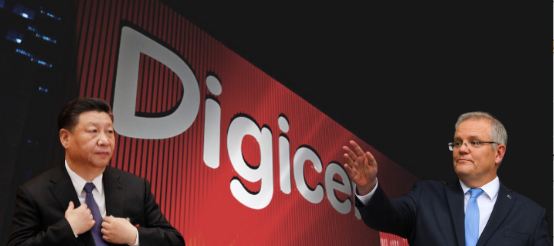For a while, China was expanding in the Pacific region silently, expectantly it made some enviable gains too. However, Australia has been consistently foiling any and every effort from the CCP to chip away at the influence of the USA and Australia in the region. On Monday, the A$45 billion ($33 billion) Australian telecommunications company Telstra (TLS.AX) confirmed media rumours that it was in talks with the Australian government to buy Digicel Pacific’s companies in Fiji, Papua New Guinea, and other adjacent islands.
Digicel, a telecommunications service provider, suffering from financial hardships and complicated situations, was looking to rapidly offload its mobile phone networks across the Pacific region, including in Papua New Guinea, Fiji, Tonga and Samoa. However, the potential buyers were creating problems on a political level as the most probable buyers were Chinese companies which could easily have compromised the geopolitical status-quo of a region as it has traditionally been an Australian area of influence.
China wanted to seal the deal and gain a significant foothold in this region. A number of Chinese companies were reportedly interested in Digicel’s assets, including Huawei, ZTE, and China Mobile. However, the Australian government realised this way before any of the Chinese companies could make a significant move and has deterred China in this Pacific tango.
As anonymous sources have ascertained allegations of Chinese interest in the nose-diving company, Canberra appears to be soliciting the help of a private business expressly to prevent Digicel Pacific from falling under Beijing’s control. The transaction would be minimal in terms of money. In 2020, Digicel Pacific produced an EBITDA of around A$320 million, which is just about 4% of what analysts predict Telstra to earn in the year to June. In any scenario, the majority of a projected A$2 billion bill would most likely be covered by Australian taxpayers.
The Chinese efforts to punish Australia economically have failed while the Australians have severely punished the Chinese. As per the data released by Beijing’s customs agency, Australia exported goods worth $148 billion ($US114.8 billion) to China last year. This is a small decline against the record level of exports worth $154 billion ($US119.6 billion) set in 2019. And even the small decline can be explained by the drastic decline in Chinese consumption following the Wuhan virus outbreak and the general economic slowdown triggered by a global backlash against Beijing.
Yet, Australian exports to China are almost 10% higher than the 2018 levels. China’s trade tariffs campaign against Canberra has been undermined by the high iron ore prices. Iron ore, the basic raw material in steel manufacturing, is in high demand across China. Steel demand is going up in the Communist nation because of the Xi Jinping administration’s ambition to revive the Chinese economy by pumping billions of dollars into construction activity (BRI).
So, as the infrastructure development blitz needs lots of steel, and steel manufacturing itself needs a lot of iron ore, China is not ready to deny Australian Iron-ore as Australia accounts for 60 per cent of iron ore supplies to the Chinese steel mills. Australian miners like BHP, Rio Tinto and Fortescue are some of the biggest suppliers of iron ore to China. Elevated iron ore prices are thus poking holes in Xi’s trade wars against Canberra.
And now, a deal would be the Australian government’s latest attempt to curtail Chinese influence in the region, particularly in the telecommunications industryby Digicel. Huawei Technologies Co. has been barred from participating in Australia’s 5G mobile network like Digicel. Australia announced in 2018 that it would construct an undersea high-speed internet cable to the Solomon Islands, excluding Huawei from the project. More recently, Australia began analysing a Chinese company’s lease of a port in Darwin, Australia’s northernmost city, on security grounds.
Australia’s Department of Foreign Affairs and Trade said that where appropriate, the government supports Australian businesses like Digicel investing in infrastructure in the Pacific. With these developments among many others, Australia has shown China its place and ended the elusion of a roaring dragon.
